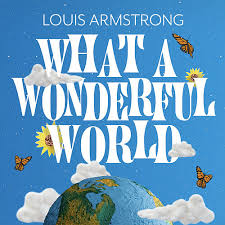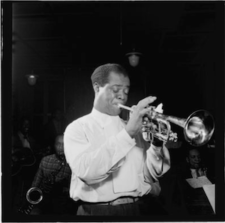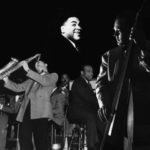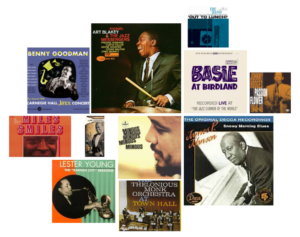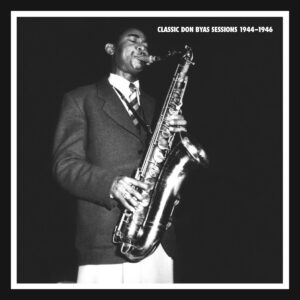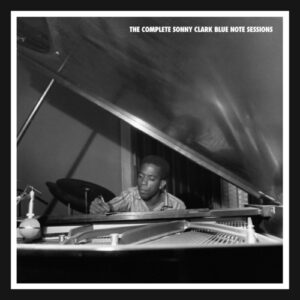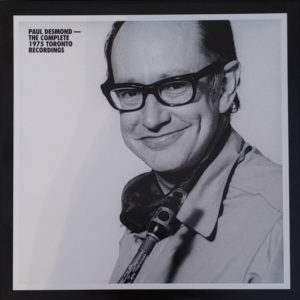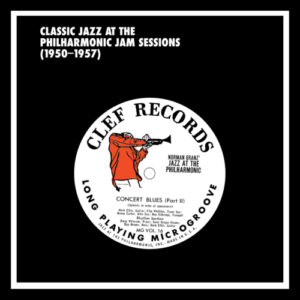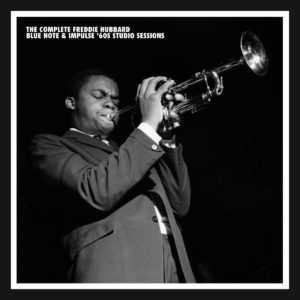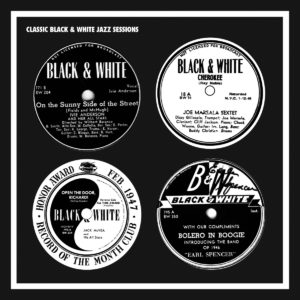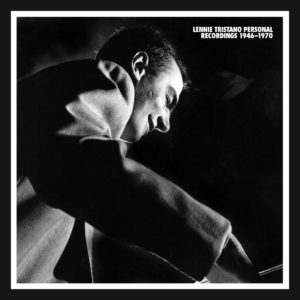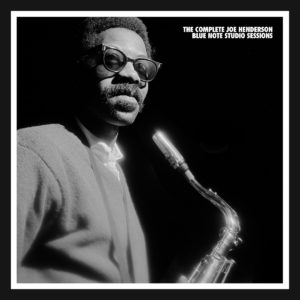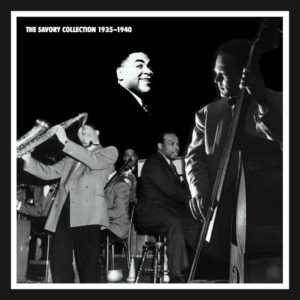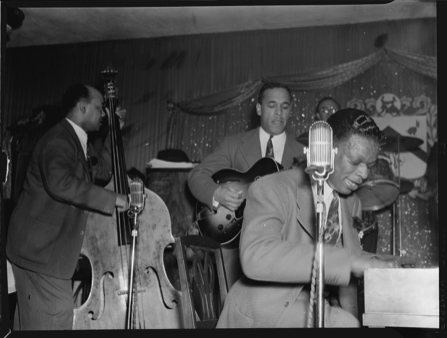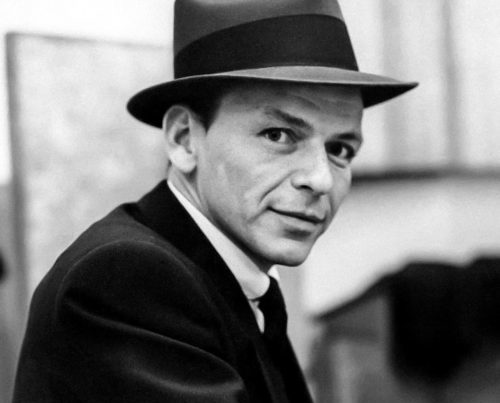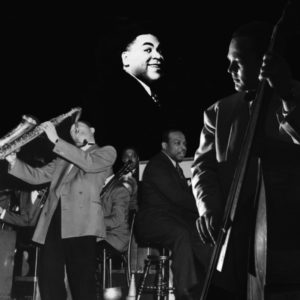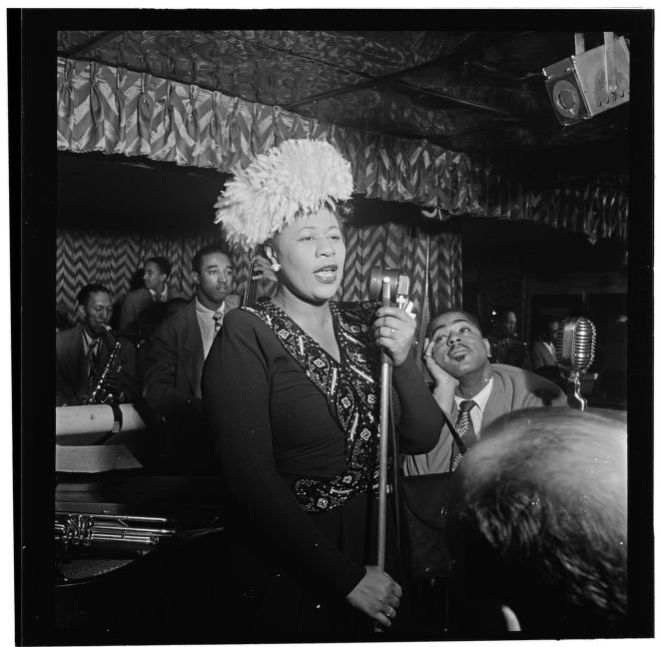
Best Jazz Albums
Jazz Vocals
© William P Gottlieb, Library of Congress
Bessie Smith
The Collection
She was known as “The Empress Of The Blues.” In the 1920s, Bessie Smith had no close competition as a blues and jazz singer, at least until the rise of Louis Armstrong. Her voice was so powerful that she overcame the primitive recording technology of the time and she still communicates to today’s listeners. Features a number of classic jazz recordings.
Featured Track: Tain’t Nobody’s Bizness If I Do
“Tain’t Nobody’s Bizness If I Do” is associated with Billie Holiday and was the trademark song for Jimmy Witherspoon. They both first recorded it in 1949, 26 years after Bessie Smith made her definitive version. Percy Grainger’s song of independence had already been waxed by Anna Meyers and Sara Martin the previous year in 1922 but Bessie Smith made it into a standard during one of her first record dates. Accompanied by the basic piano playing of Clarence Williams, the Empress shows that she was not going to be told what to do and how to act by anyone.
Bing Crosby
The Essential Bing Crosby
Before becoming the most popular singer of 1935-45, a period when he branched out to sing a wide variety of music and virtually defined pop vocalizing, Bing Crosby often sang jazz music and quite well. His phrasing and scat-singing (influenced by Louis Armstrong) along with his baritone voice, permanently changed pop music.
Featured Track: Some Of These Days
“Some Of These Days,” which was recorded with a small jazz group, has solos by guitarist Eddie Lang, trumpeter Max Connett, and Frankie Trumbauer (the master of the C-melody sax) but is most notable for including Bing Crosby’s greatest scat solo and for showing today’s listeners just how inventive a jazz singer he could be in his early days.
Boswell Sisters
That’s How Rhythm Was Born
They were the first and one of the very best jazz vocal groups. The Boswell Sisters (Connie, Martha and Vet) grew up in New Orleans, made it big in New York in 1930, and showed that sister groups did not have to sing predictable harmonies. With Connie as the soloist, the Boswells held their own with their all-star accompaniment on a series of lively recordings during 1930-36.
Featured Track: Sentimental Gentlemen From Georgia
“Sentimental Gentlemen From Georgia” is typical of their frequently hot arrangements, starting uptempo, switching to a slower bluesy section (led by Martha Boswell on piano with the Dorsey Brothers, trumpeter Manny Klein and Larry Binyon on flute), and then finishing in rousing fashion. No other jazz music oriented vocal group would be on their level until Lambert, Hendricks and Ross 35 years later.
Billie Holiday
Love Songs
Billie Holiday, particularly as her life progressed, seemed to live the words that she sang. She altered melodies and lyrics in subtle ways without scatting or losing the essence of the song. “All Of Me” has been sung by a countless number of singers through the years but few versions are as quietly sensual as Lady Day’s, full of inner heat and yearning.
Featured Track: All Of Me
On this classic version, Billie Holiday is joined by an octet led by pianist Eddie Heywood that features warm comments by tenor-saxophonist Lester Young (her musical soulmate) that perfectly fit the sensibility and phrasing of Lady Day.
Jimmy Rushing
Count Basie Plays The Blues
Most males who sang with swing era big bands (not counting instrumentalists who occasionally took a vocal) were confined to ballads and novelties. Jimmy Rushing was a major exception. A distinctive blues shouter who was also skilled at singing swing standards and ballads, Rushing (known as “Mr. Five By Five” due to his large shape) was a fixture with the Count Basie band for nearly 15 years.
Featured Track: Goin’ To Chicago Blues
“Goin’ To Chicago Blues,” which has a classic arrangement by Buck Clayton, features Rushing at his best, trading off with the full Basie ensemble and putting plenty of feeling into the lyrics. The song was so successful that it would be performed regularly by Joe Williams with the later Basie band in the 1950s.
Ella Fitzgerald
The War Years, 1941-1947
Ella Fitzgerald always sang with a smile in her voice. While she had a difficult childhood, she found her escape in singing and always made it obvious how much she loved it. Ella could sing heartfelt ballads and lowdown blues with the best, but when it came to swinging and spontaneously scatting, she was on a level all her own.
Featured Track: Oh, Lady Be Good
One of her early classic scat-filled records was her 1947 recording of “Lady Be Good.” Ella improvises off the melody and then scats up a storm for five choruses that are filled with song quotes (including “Dardanella,” “A-Tisket, A Tasket,” and “Oo-Pop-A-Da”), an imitation of Slam Stewart (who sang wordlessly in unison with his bowed bass), wit, and pure joy.
Sarah Vaughan
In Hi-Fi
Possessor of one of the most remarkable voices of the 20th century, Sarah Vaughan could have been an opera singer but fortunately blessed jazz with her talents. Among the very first vocalists to fully understand bebop (her teachers included Dizzy Gillespie and Charlie Parker), she had the ability to improvise in a very modern way while usually staying close to the lyrics.
Featured Track: Mean To Me
On “Mean To Me,” Vaughan states the melody with subtle variations but, after Budd Johnson’s tenor solo, she virtually reinvents the swing standard with wondrous results. Dizzy must have been proud.
Joe Williams
Joe Williams Sings, Count Basie Swing
The perfect successor to Jimmy Rushing with the Count Basie Orchestra, Joe Williams loved to sing ballads but became most famous for his rendering of the blues. After being fairly obscure during the first 15 years of his career, he hit it big with his classic version of “Every Day I Have The Blues,” a song that he had first recorded a few years earlier with a small group.
Featured Track: Every Day I Have The Blues
The recording with Count Basie (featuring Ernie Wilkins’ memorable arrangement and the singer’s long note at its conclusion) was such a sensation that it became a permanent part not only of the Basie repertoire but of nearly every Joe Williams performance in his long solo career.

